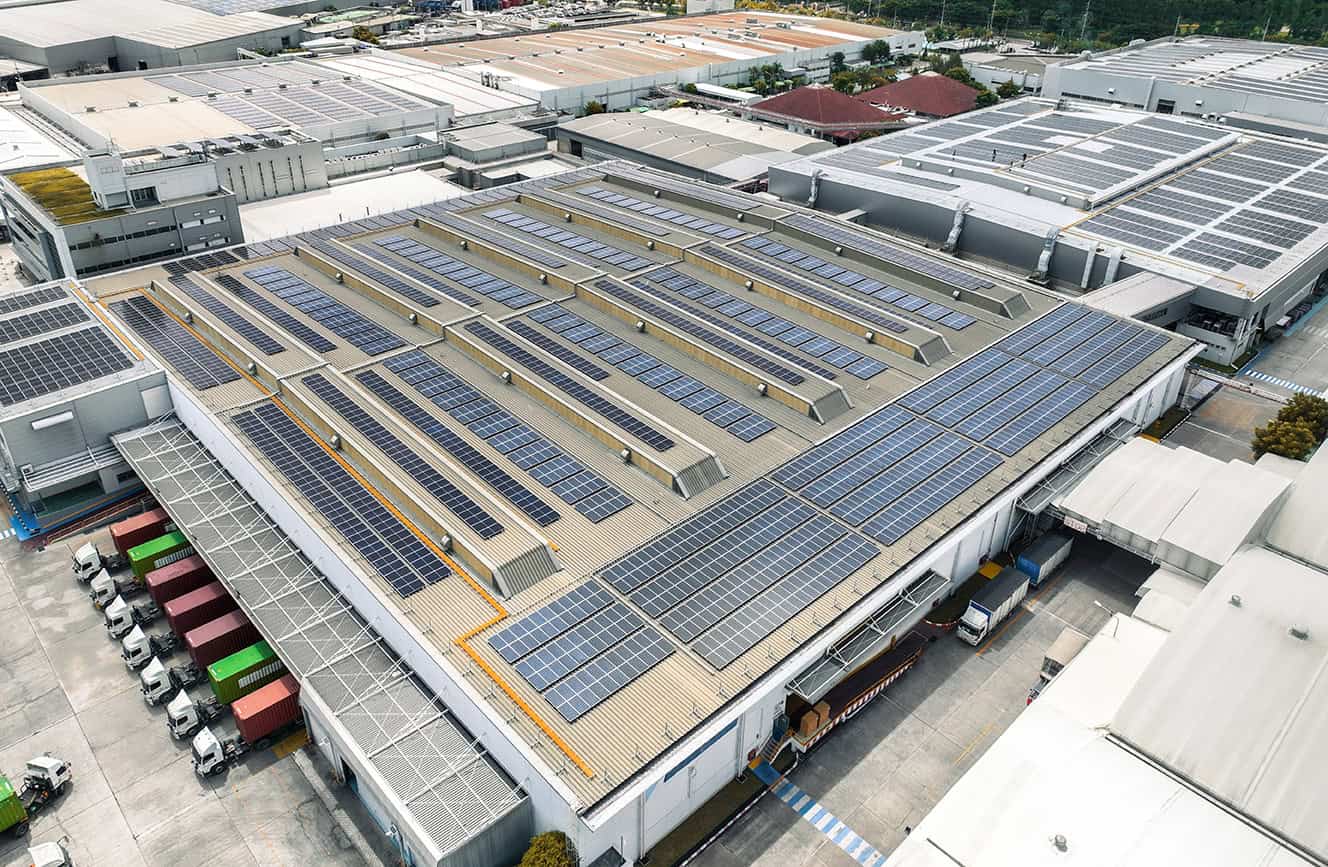
Synergy (noun): The interaction or cooperation of two or more organizations, substances, or other agents to produce a combined effect greater than the sum of their separate effects.
Synonyms: Collaboration, Teamwork, Partnership, Unity, #MovingAsOne
Why can a successful team accomplish more together than its members can achieve independently? While many complex dynamics are involved with teamwork, the answer to this fundamental question is simple. Successful teams accomplish more than individuals because their members develop synergy. In other words, they can work together in a manner where their combined output is greater than the sum of their individual efforts. Synergy is the secret sauce separating great teams from good teams and is a key ingredient differentiating e2open’s Logistics as a Service (LaaS) offering from others in the managed transportation services (MTS) space.
Most transportation leaders understand a strong team’s critical role in overall success. As an organization determines how to structure its transportation operations, there are many reasons why they may consider outsourcing. In that scenario, they likely want to choose the partner that will generate the largest ROI and the most value for their organization.
When shopping for an MTS provider, you are likely to hear a lot of buzzwords such as “continuous improvement” and “customer focus.” These ideals should exist within any solution, but that is not always true. It is essential to think critically and ask probing questions about the provider’s ability to deliver on their promises. Doing this will give you insight into how a provider is structured and where you, as a customer, fit into their plans.
Most MTS providers will utilize a structure that is either more task-focused or relationship-focused. Determining where a provider falls on this spectrum will enable you to identify critical insights around the benefits and pain points you may experience when working with that provider. Let’s take a closer look at both models.
Task-focused vs. relationship-focused MTS providers
Task providers are focused on reducing internal costs and maximizing efficiencies. Profitability is achieved by managing as many customers as possible with as few resources as possible. They tend to utilize shared resources and treat the order-to-cash process like an assembly line. For example, they may have a group responsible for building loads, another may secure capacity, another may schedule appointments, and another may handle tracking. In this model, each group performs its designated task for many customers. They become incredibly proficient in their focus area, allowing them to handle a higher volume of work.
Relationship providers are focused on developing synergy with each unique customer and gaining expertise in all aspects of the customer’s transportation network. Profitability is achieved by delivering value to customers, which allows both partners to grow & prosper together. They tend to assign dedicated resources to each customer, building a team that manages the entire order-to-cash process. A singular customer focus enables the team to gain expertise in the customer’s business, quickly react to problems, and add value through continuous improvement initiatives. This mindset leads to synergy, which leads to a high return on investment.
How to determine the best type of MTS provider for your company
Now that we’ve differentiated the two models, how do you determine the best fit for your business? Let’s start by making a high-level comparison.
Task providers tend to be cheaper, but they generate significantly less ROI. Are your transportation operations simple, consistent, and predictable? Do you want a service provider that concentrates on basic execution without much focus on driving continuous improvement? If so, a task provider may be worth consideration.
On the other hand, while relationship providers may come at a higher cost, they will create a more considerable ROI. Do your transportation operations involve a lot of complexity, tribal knowledge, or unpredictability? Do you want a partner that sees execution as a baseline and is positioned to build on that to drive continuous improvement? If so, then a relationship provider is the better option.
Diving deeper, it becomes apparent that this difference in structure impacts many vital functions that a transportation team is expected to perform. Some of the most critical are called out below:
- Communication: Task providers involve more stakeholders with each load. This increases the number of information transfers, increasing the risk of a communication breakdown. Think of the “Telephone” game where the first person to communicate the message has it 100% correct, but by the time it reaches the end of the chain, many critical pieces of information are lost. A relationship provider has a single group managing the entire process, thus mitigating this risk.
- Continuous Improvement: Task providers execute specific work that is in scope but is not designed to pursue continuous improvement. Each “assembly line” member is focused on a particular set of tasks, likely for multiple customers. This setup does not naturally facilitate an environment where the provider will organically identify areas of opportunity. A relationship provider has a clearer picture of your business. This enables them to pursue projects that span across the entire order-to-cash process.
- Response Time: We’ve all called a service provider at one time or another and have heard phrases such as “press 1 for tracking” or “your expected hold time is 30 minutes”. Then, when you reach the provider, you either get transferred or waste more time explaining the problem. This type of scenario is more likely to happen with a task provider. If you use a relationship provider, you will have direct access to someone who knows your business and can quickly understand the situation.
E2open is a relationship provider
Hopefully, by now, you have an idea of which type of provider fits better with your business. Are you looking for a service provider or a true partner who considers themselves an extension of your team? Do you want somebody whose success is driven by their own results or someone who is successful if you are successful? If you are looking for a trusted partner to help you level up your transportation game, then the e2open LaaS offering might be the right fit. What differentiates LaaS from the rest of the competition? Simply put, we build strong customer relationships, which leads to the development of synergy, generating results.
E2open is a relationship provider. Our business model is designed to foster strong partnerships with our customers and ultimately help them maximize their ROI. When you partner with LaaS, you will have resources assigned to your account that will be 100% focused on your business. In other words, your business is what they will live and breathe every day. We will come into the relationship with expertise using our best-in-class TMS platform, industry experience, and a ton of enthusiasm around learning your business. We will then work to develop and foster a relationship dynamic where we act as an extension of your organization rather than simply being a service provider. We will gain expert knowledge of your transportation network and learn your tribal knowledge, strengths, weaknesses, challenges, and opportunities. This relationship will allow us to build synergy with you and #MoveAsOne, delivering value beyond what you could receive with any other business model. Our goal is your success.
Don’t just take my word for it – listen to what our customers have to say:
“E2open is like a built-in network resource team. If we need information or get stuck, e2open usually gets us to the answer quicker because they already know us. They know the quirks and demands of our business and can often call things out even before we notice. They are engaged. E2open helps push us on best-in-class initiatives that we’ve executed.” – Cary Sarazin, Logistics Director at Aspire Bakeries
“Dawn Foods and e2open have built a collaborative relationship to navigate the transportation marketplace in North America. Logistics as a Service is more than a dedicated Logistics Analyst; it is a commitment by e2open to Dawn Foods’ success. They deploy whatever resources necessary to solve issues and identify opportunities.” – Chuck Moffett, Sr. Director of Transportation at Dawn Foods
Real-life examples of the relationships and value we create for Logistics as a Service customers
You might think this sounds great in writing, but can a relationship-based model like LaaS truly add tangible value to your business? To answer that, I’d like to draw from my own experience. I’ve been with e2open for seven years and have spent all of it within our LaaS department. Over that time, I have held several roles, including job titles of Logistics Coordinator & Logistics Analyst. Here are a couple of real-life examples that highlight the value our customers receive because of the relationships and synergy we build together.
Example #1: Tribal Knowledge Prevents Potential Shutdown
Previously in my e2open tenure, I was a Logistics Coordinator for an automotive manufacturer that had a just-in-time (JIT) model. In this environment, late/missed deliveries had the potential to significantly disrupt business – so, the stakes were high. During one season, suppliers for “Facility A” had trouble meeting demand requirements. This meant that every inbound load was even more critical than usual, as a late delivery would put the facility at risk of shutting down a line. One day, I had a less-than-truckload (LTL) shipment going into “Facility B” from an external supplier that was delayed. Due to my intimate knowledge of my customer, I knew that “Facility B” was a feeder plant, and one of the plants they produced parts for was “Facility A.” I also knew the supplier shipping into “Facility B” provided material that was required to make the part “Facility B” was shipping to “Facility A” the next day. A task provider is unlikely to have this knowledge, which increases the risk that this situation goes unnoticed until it’s too late. The organizational structure at e2open put me in a position to identify this problem early, which allowed me to take the following actions in pursuit of a solution.
- Inform critical stakeholders at the shipper
- Authorize an LTL carrier to hold freight at their terminal
- Book expedited carrier to intercept freight from the LTL carrier
In real time, these steps needed to happen quickly to have a chance at success. If the LTL carrier had already loaded the freight on an outbound trailer, they would be less likely to take it off and hold it for us. If we could not get an expediter into the LTL terminal before they closed, we wouldn’t have made delivery on time. In other words, if we weren’t positioned to catch the delay early and act quickly, this likely would have caused more disruption than it did.
Example #2: Relationship Focus Drives Continuous Improvement
I worked as a Logistics Analyst for a Food and Bev customer who had owned the e2open TMS platform for several years. They recognized that they needed help utilizing the TMS in a manner that would allow them to achieve their goals. To solve that, they engaged with our LaaS team and contracted a Logistics Analyst (aka TMS Superuser) to help.
When we start working with a new customer, we review their current state and develop a project workbook (in LaaS, we maintain project workbooks for all our customers). During this process, we identified low routing guide compliance as a huge opportunity for the customer. Further conversations made it clear that improving this metric would resolve several inefficiencies throughout their network.
Here are some of the key actions we took to help the customer achieve improved routing guide compliance:
- Educate the customer on different methodologies used to measure compliance and align on a definition that best fits their objectives.
- Review the customer’s performance against the e2open network of shippers. (One benefit of a LaaS partnership is access to over $18B in network data against which you can benchmark your performance across various metrics.)
- Develop custom analytics to identify the most significant areas of opportunity.
- Shadow several of the customer’s load planners to better understand tribal knowledge and identify root causes that were not easily visible through data.
- Create a guide that detailed customized recommendations to help the shipper achieve and maintain best-in-class compliance.
These actions led to a 15% improvement against the network over six months. When I say, “against the network,” I mean that the aggregate performance of the e2open network of shippers stayed roughly the same. At the same time, this customer gained 15% – which suggests that our organic efforts drove the improvement rather than a change in external market conditions.
At e2open, project workbooks are one mechanism we utilize in our never-ending pursuit of continuous improvement. We conduct weekly workbook reviews with our customers and constantly work to see projects through to completion. If you go with our solution, your projects will be the priority; they will not be in a queue with other customers. A task provider is likely to prioritize your projects in conjunction with those from other customers (if they even offer project support).
How e2open can help
As you evaluate your current (internal or external) solution, consider the value you are receiving today. Is it sufficient, or should you be receiving more? If you engage with e2open or any other managed service provider, I encourage you to ask deep questions and expect detailed answers beyond typical sales jargon. A best-in-class MTS solution will provide a team that builds a relationship with your internal stakeholders focused on the common goal of your success. The relationship is the foundation that will lead to the development of synergy, ultimately increasing the return on your investment. We’d love to talk to you if you are not currently getting the results you need to support your organization. Reach out to learn more about how we can #MoveAsOne together!

Author
Alex Moritz
Alex Moritz is the Senior Manager of Managed Analytical Services at e2open. He has been with e2open since 2016 and has held a variety of positions, all within the logistics as a service (LaaS) department. Before working with e2open, Alex worked for an ocean carrier and with a freight brokerage, bringing a wealth of industry experience to his current position. He holds a bachelor’s degree from Hope College, with majors in management and music. Based in Holland, MI, Alex enjoys spending time with family, playing video games, and watching sports in his free time.





